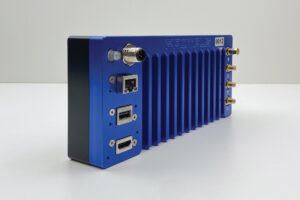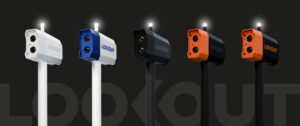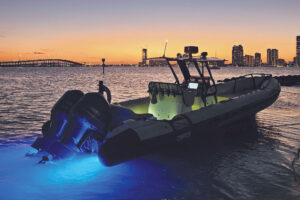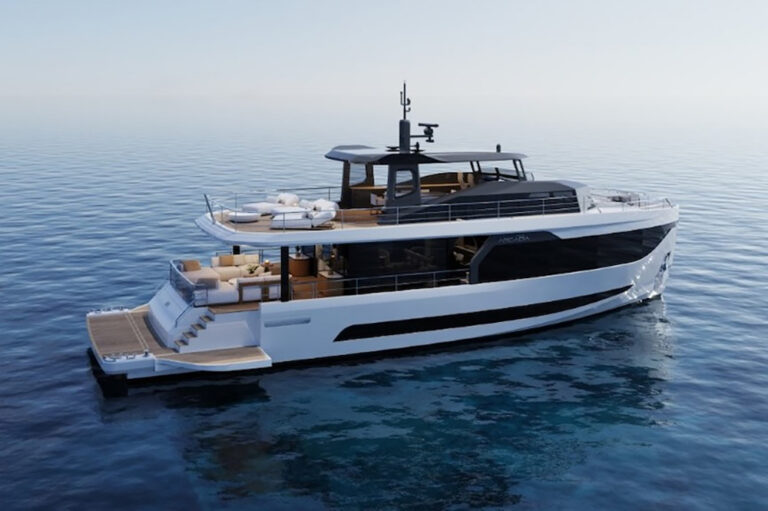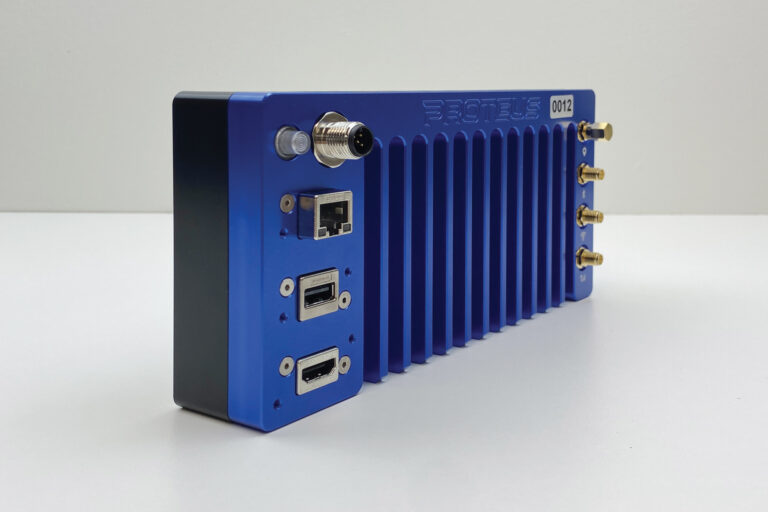Several years ago, makers of handheld GPS receivers lowered the prices of basic units, reduced their size and improved their performance. Most yachtsmen thought of the resulting products as great backup for a “real” GPS at the navigation station.
Then came GPS/plotters, which ran increasingly sophisticated electronic cartography and displayed color charts. Mariners stopped asking whether to switch to electronic charting and started considering which system to buy. Paper charts and traditional navigational procedures are essential for safe navigation, but it has become difficult to deny the usefulness and ease of operation today’s GPS receivers provide.
The Garmin GPSMap 76 is just such a little giant. It weighs less than a pound, fits into a shirt pocket and is about as versatile as a navigational device can be. For a suggested retail of $399, it’s a steal.
It runs for 16 hours on a pair of AA dry cells, or indefinitely on a 12 VDC adapter. It provides 8 megabytes of internal memory, so you can download data from Garmin’s MapSource CDs. It has a built-in database of major cities, coastlines, nautical navigation aids, lakes, rivers, interstates and tides. The key to the 76’s versatility is it ability to interface with a PC and NMEA 0183 electronic devices, such as a sounder.
I tested the GPSMap 76 as a standalone navigational aid and without the benefit of the MapSource CD. Our office is 100 percent Macintosh, and MapSource requires a PC. I discovered that operating GPSMap 76 is very much like operating a larger, fixed-mount unit. The main keys are even large enough to allow a solid push, though the Zoom keys are too small for my fingertips. All the operations are performed by toggling through a variety of pages and menus.
The GPSMap 76 initializes automatically by locating itself after it acquires the requisite number of satellites, and it does so in a few minutes. Although it defaulted to usable setup choices-location format, map datum, etc.-I changed speed and distance to read in knots, depth in meters, and north reference to true.
My favorite navigational exercise actually occurred on land, this being a novelty for me. When I selected the Map page, a large chunk of North America appeared in ludicrously tiny detail. I moved the cursor along the map until I came close to my location in Connecticut. The name of the largest city closest to the cursor appears on the screen as the cursor moves. Then I zoomed in on my location until a clear representation of Interstate 95 appeared. The street map showed me Exit 4, which became “home.” I located Exit 17 in Westport, marked it as a waypoint and headed east on I-95.
The “highway” display showed my cross-track error. Above the highway, my speed appeared in knots (because I forgot to change it for highway use), distance to exit 17 in nautical miles (same reason), and course and cross-track error in degrees. The procedure is the same when you’re on the water.
I liked this handy little navigator very much. The only thing that annoyed me was having to cycle through the alphabet using the cursor pad to enter the name of each waypoint-tedious beyond words to this impatient user.
Nevertheless, the unit felt substantial in my hand, floated as Garmin said it would and remained waterproof throughout the two-week test period. I wouldn’t hesitate to recommend it to a friend, if I knew that person enjoyed messing with electronic devices. The GPSMap 76 is so sophisticated and complete, it may overwhelm the casual user. It has hundreds of options for customizing its functions, and two weeks really isn’t enough time to check them all out.
Contact: Garmin International, (913) 397-8200; www.garmin.com.

